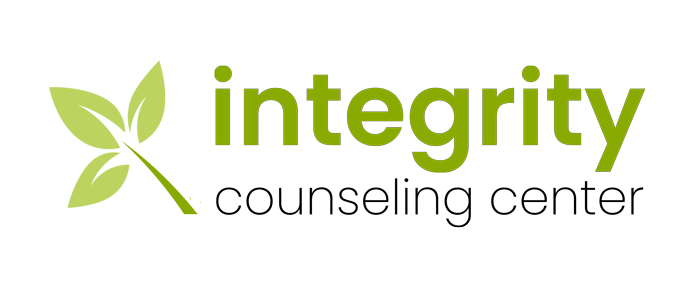Written by Ericka Martin
Are you maxed out by stress and anxiety? Living with persistently high levels of anxiety can take its toll, impacting your ability to sleep at night, to concentrate at work, or to slow down enough to truly relax. Sometimes anxiety becomes so miserable that people will do anything they can to avoid the things that trigger it. With anxiety this intense, it makes sense why people come to counseling wanting to diminish it. It makes sense why they might view it as an enemy that has caused harm.
But what if anxiety sometimes exists to help you out? What if it gets louder and louder, intensifying until it gets your attention? What if you could listen closely to its underlying message to find relief? What if anxiety were your friend, a loyal ally, trying to help?
This is exactly the perspective on anxiety taken by renowned author and speaker, Karla McLaren in her book, “The Language of Emotions.” Karla suggests that the different shades of anxiety offer different “gifts.”
The feeling of FEAR offers the gifts of:
- Intuition
- Instinct
- Focus
- Clarity
- Attentiveness
- Readiness
- Vigor
According to Karla, FEAR asks the question: “What action should be taken?” FEAR helps you orient to novelty or change. If you’re in a new situation, new place, or around new people, it would make sense why FEAR might be needed so that you can adjust to all of this newness and whatever it might hold. What if you were able to listen to your fear, honor your gut instincts, and allow it to help you be prepared?
Sometimes, when you ask the question, “What action should be taken,” the answer you come back with is “no action” (such as when you’re lying awake at night and it’s not a time for action or more work). You might thank your FEAR for helping remind you of your unfinished business and then tap into the coping techniques that help you with letting go:
- Deep breathing
- Progressive Muscle Relaxation
- Prayer
- Journaling
- Meditation
WORRY offers a slightly different set of gifts (per Karla McLaren):
- Foresight
- Focus
- Conscience
- Task-Completion
- Procrastination alert-system
The questions Karla suggests asking yourself when you’ve noticed yourself feeling WORRIED are: “What triggered this feeling?” and “What really needs to be done?” WORRY helps you to prioritize what’s most important to you, if you allow yourself to genuinely reflect on what that might be. It might also help alert you for a need to set more boundaries, to say “no” to something that isn’t as much of a priority than it initially seemed.
Karla suggests that even PANIC might have something valuable to offer, including the gifts of:
- Sudden energy
- Fixed attention
- Absolute stillness
- Healing from trauma
The feeling of PANIC might alert you to something from the past that has been “frozen in time,” needing healing. A counselor can help you better understand and process triggers for PANIC episodes and how to navigate them effectively.
Let me illustrate how listening to your anxiety and its messages might help you:
On the 4th of July, I spent two hours outside my house hearing fireworks explode like surround-sound around me from every direction. Cluing into my body, I observed feelings of fear, anxiety, worry, and panic (and some other emotions in between) in varying intensity throughout the event.
As the light outside began to grow dim and the intensity of fireworks escalated to war-zone intensity, my body tensed up and stayed that way for at least an hour. At first, my thoughts went to– “What’s wrong with me that I’m so afraid right now? Why can’t I relax?” It took some time, but I was eventually able to try out thanking my emotions, my fear. Then, I began to probe–What good thing can I thank them for? How are they serving me right here, right now?
The first response came immediately. Fear was giving me the gift of focused attention and readiness to cover my face in a heartbeat should a stray firework hurl my way. It oriented me to fireworks exploding behind me, out-of-sight, helping me assess how close I was to danger.
And yet, I continued to jump at every unexpected explosion. Panic was triggered by the big booms. My breath felt more shallow in those moments. There was a slight tightness in my chest. I asked myself, what’s been frozen in time? I remember last year when a neighbor across the street allowed their 3-year-old to shoot of a Roman Candle that flew mere feet from hitting my family. That was a true safety hazard, but I was jumpy around fireworks before that, so I decided to dig deeper.
I remember a family member lighting off fireworks when I was a child rather haphazardly. I remember a fire being ignited in a field that the fire department had to come put out. When I ask myself what needs to be healed, I have a sense that my boundaries back then got squashed, even laughed at. My fear was told it was invalid, wrong, and silly.
What needs to be healed? I need to honor my need for boundaries. As a child, my fear grew stronger when boundaries were denied. My fear kept me ever vigilant because I wasn’t permitted to keep at a safe distance without teasing. As a grown-up now, I can make friends with my fear. My instincts are good. I can use my fear to assess my neighbors for haphazard behaviors with their fireworks. I can set boundaries by moving myself to a safe distance if they’re doing crazy things.
If you’d like help understanding and coping with anxiety more effectively, a counselor is able to help.
From the Author: Ericka Martin
I want to thank Integrity Counseling Center for letting me make a special guest appearance on their blog. Olya Pavlishina, with Integrity Counseling Center, also wrote a terrific article, 3 Tips For Managing Technology With Your Teen,” which I’ve posted on my own website at www.starmeadowcounseling.com.

